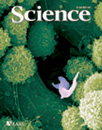Adenylate Cyclases of Trypanosoma brucei Inhibit the Innate Immune Response of the Host
Science 27 July 2012: Vol. 337 no. 6093 pp. 463-466 (Boshart lab)
27.07.2012
The parasite Trypanosoma brucei possesses a large family of transmembrane receptor–like adenylate cyclases. Activation of these enzymes requires the dimerization of the catalytic domain and typically occurs under stress. Using a dominant-negative strategy, we found that reducing adenylate cyclase activity by about 50% allowed trypanosome growth but reduced the parasite’s ability to control the early innate immune defense of the host. Specifically, activation of trypanosome adenylate cyclase resulting from parasite phagocytosis by liver myeloid cells inhibited the synthesis of the trypanosome-controlling cytokine tumor necrosis factor–α through activation of protein kinase A in these cells. Thus, adenylate cyclase activity of lyzed trypanosomes favors early host colonization by live parasites. The role of adenylate cyclases at the host-parasite interface could explain the expansion and polymorphism of this gene family.


